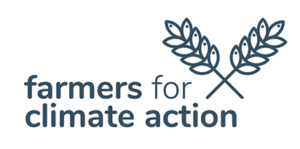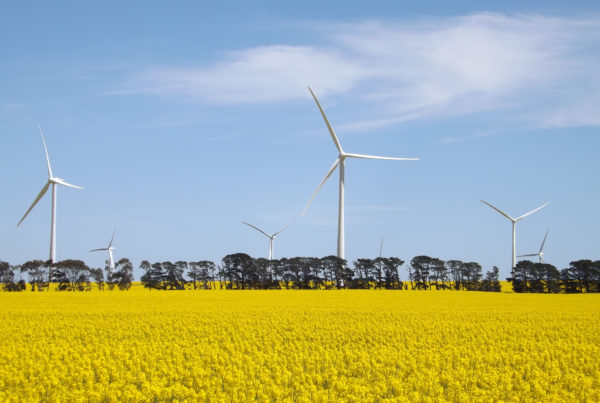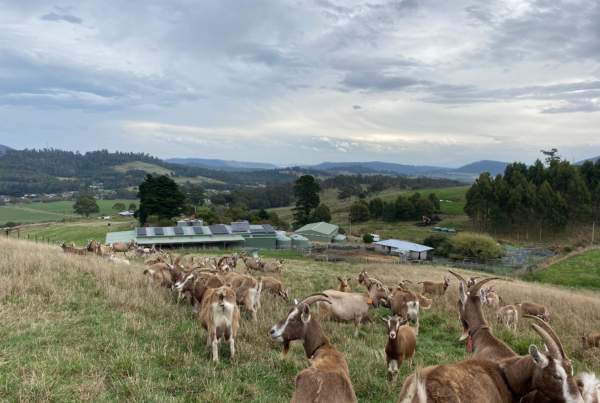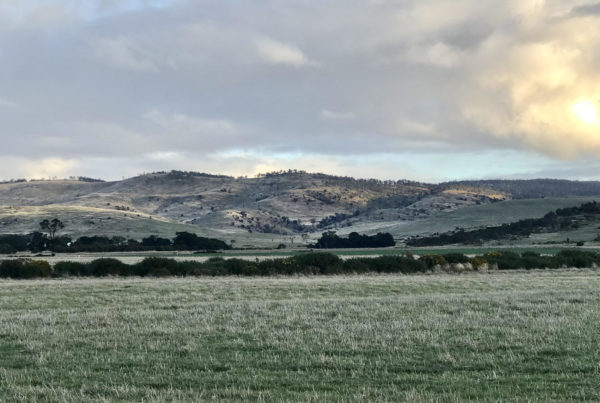28 February 2024
New Vehicle Efficiency Standard—Cleaner, Cheaper to run Cars for Australia Submission
Farmers for Climate Action (FCA) appreciates the opportunity to again participate in the policy consultation process to inform the Government’s commitment to introducing New Vehicle Efficiency Standard (NVES). We applaud this significant step towards promoting cleaner and more affordable cars and utes which are particularly beneficial for regional Australians.
FCA is a movement of farmers, agricultural leaders and rural Australians working together to ensure Australia adopts strong emissions reduction policies. We represent more than 8,000 farmers across Australia, and our supporter base includes more than 45,000 Australians committed to deep emissions reductions across the economy this decade.
FCA welcomes the Government’s plans to introduce new fuel efficiency standards for Australia as part of a broader electric vehicle strategy. We recognise that a strong fuel efficiency standard will deliver Australia a better range of fuel efficient cars, including electric vehicles, at lower prices, and the lower running costs of EVs will help regional Australians save money.
On 31 January 2024, we submitted an open letter established by Victorian farmer Peter Stray to Minister Catherine King and Minister Bowen, calling on the Australian Government to establish strong fuel efficiency standards in order to bring more choice and affordability of electric vehicles (including farm utes) to our market. This letter was signed by more than 700 farmers and agricultural industry representatives, and over 800 people in total.
Consultation Paper Questions:
- Please rank the proposed options in order of preference.
- Briefly, what are your reasons for your choice?
- Do you support the Government’s preferred option (Option B)?
- Do you have any feedback on the analysis approach and key assumptions used?
FCA has closely examined ‘Cleaner, Cheaper to Run Cars: The Australian New Vehicle Efficiency Standard, Consultation Impact Analysis’. We appreciate the presentation of options to the Australian community and transparent identification of the impact of each option under consideration.
Option B, the Government’s preferred settings for a new vehicle efficiency standard is strongly endorsed by Farmers for Climate Action.
Option B enables a scheme whereby the average emissions intensity of Australian vehicles is reduced to around the same as the US by 2028. FCA recognises that this ambitious approach is necessary to achieve the abatement of close to 100 million tonnes of CO2 abatement by 2035, and 369 million tonnes of CO2 by 2050. Importantly, this option also allows Australians more choice and genuine opportunity to use less petrol and diesel.
The economic analysis and international research conducted by the Australian Government resonate with independent findings, highlighting the potential for substantial financial savings for regional consumers. The predicted annual fuel savings of $1,000 and a lifetime saving of $17,000 per vehicle set up the potential for fuel efficiency standards to support regional Australians. This is predicted to result in savings of up to $4 billion in fuel costs for regional Australians over the next five years, providing relief to people dealing with extended commutes in regional areas. This presents a significant economic benefit for rural communities grappling with the challenges of elevated and escalating fuel expenses.
FCA is aware of concerns that the introduction of fuel efficiency standards may impact primary producers by reducing the range of commercial vehicles they have access to, and potentially increase the costs of vehicles for farmers. While FCA does not consider that these concerns will arise, we encourage the government to consider policy treatments such as financial recompense. These will protect primary producers from undue transition costs in the event that the sector demonstrates a cost burden on farmers occurring from the NVES.
FCA considers the benefit of enhanced quality vehicle choice an important benefit for regional Australians. The preferred NVES, Option B, will enable farmers and regional Australians to have the same choice of utes, 4WDs and family cars as people living in the US and New Zealand – whether these be diesel, petrol or electric vehicles. We welcome the approach that does not impact any vehicle currently on Australian roads.
Vehicle efficiency standards in international markets show no evidence that the introduction of NVES will drive up the cost of cars in Australia. Manufacturers are already producing efficient low and zero emissions vehicles for other markets, sending these vehicles to Australia should not represent a significant change to their business model or accrue new costs.
FCA sees the NVES as a powerful instrument to help motivate global vehicle manufacturers to introduce cleaner and more affordable cars to the Australian market. We appreciate your consideration of these proposals and eagerly anticipate the positive impact the NVES can have on our environment and farming communities.
Consultation Paper Question: Who should the regulated entity be?
FCA suggests that the Department considers the Clean Energy Regulator, is the most appropriate NVES regulator, as they already regulate the NGER and ACCU schemes. FCA sees no benefit in the cost and complexity of establishing a separate regulatory body. Regardless, the regulator needs to have appropriate technical capabilities, contemporary industry understanding and be highly transparent in its operations and the reporting of compliance and emissions reductions which the CER is.
Concluding Remarks
Introducing Option B as the New Vehicle Efficiency Standard (NVES) is a crucial policy improvement which will bring Australia to global fuel efficiency standards. It will secure both cost savings for regional Australians and the environmental benefits of deep emissions reductions and must be adopted as a matter of urgency.
Thank you for the opportunity to provide input to the 2024-2025 budget process. Please don’t hesitate to contact me for more information or to discuss this submission further.
Sincerely,
Natalie Collard
CEO of Farmers for Climate Action
—
Email: [email protected]
Phone: 1800 491 633
Web: farmersforclimateaction.org.au
Post: Suite 327 M Centre, 11 Palmerston Lane, Manuka ACT 2603







